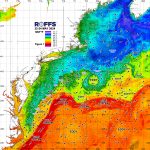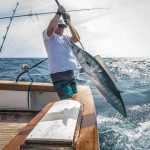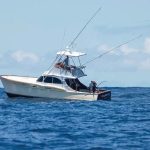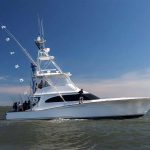Marine Recreational Fisheries Statistics Survey (MRFSS) is a highly faulty data set. This is not only my opinion, but the opinion of many fisheries scientists including those at the National Academy of Sciences and the National Research Council who reviewed the MRFSS Program. It seems logical that if the data derived from this survey are flawed, then the results of the analyses are also flawed. I am not an attorney but this seems similar to exclusionary rule derived from the “fruit of the poisonous tree” is not generally admissible. Among the many deficits of the science that I would like to comment on is the lack of comprehensive fishery independent data in the population assessments. Acoustic and other survey techniques have advanced dramatically in the last 10 years that these techniques should be part of any fisheries assessment. The laser survey based studies which continue to provide good data are limited to the Florida Keys. One certainly needs to know the size – age structure of the fish during spawning aggregations over the fishes complete range to start understanding the dynamics of the populations. In addition, changes in the catchability (availability, vulnerability, and fishing power) have not been comprehensively considered in the stock assessments. I refer to the non-random changes in catchability which result from changes in the wind, waves, water temperature, water clarity, salinity, chlorophyll, etc related to our varying climate. Catchability is not random or a fixed number as is often assumed in stock assessments. For effective fisheries management one needs to know the meta-population genetic structure of the fish of concern over its management range and how it has varied over the years. I wonder how you really can decide to close the entire fishery to exploitation, when this is not know. It is quite possible that you may only have to completely close Monroe, Metro-Dade and Broward Counties to fishing, while other northern areas could remain open or have partial or rolling closures that would effectively allow the “populations” to recover over time. I do not believe that you done these analyses? It is my opinion that you should conduct many different types of sensitivity analyses before destroying an industry composed of many hard working and honest commercial and recreational fishermen, as well as, a support industry that depends on this active fishery. Regarding the displaced fishing effort, have you considered the negative effects that will result on the coastal fish populations as a result of displaced fishing effort? What will happen to the stocks of king mackerel, cobia, Spanish mackerel in the ocean and the redfish, snook and sea trout when snapper – grouper fishermen start to increase their efforts on these stocks. I am concerned about tarpon and tripletail as well. I am sure that the various State fishing agencies did not consider this increased fishing effort and subsequent mortality when establishing their management regimes. While the government scientists have worked many long and tired hours at the population assessments, they have failed to consider the work of other non-government scientists who have worked on the data as well. The treatment of industry scientists with a different interpretation of the same data was inappropriate and an embarrassment to the Council and what it should stand, i.e. community based fisheries management. Industry scientists should have been part of the process from the start and perhaps the flawed attempts at estimating the stock prior to 1980 would have come to light earlier in the process. The bottom line of my comments is that the management analyses are incomplete, as well as, limited and flawed. I do not believe that the entire fishery should be closed, i.e. setting the catch limits to zero, until the work is done properly.]]>
Shipping, Tow, and Rig Move Forecasts
Current and Eddy Forecast Samples





